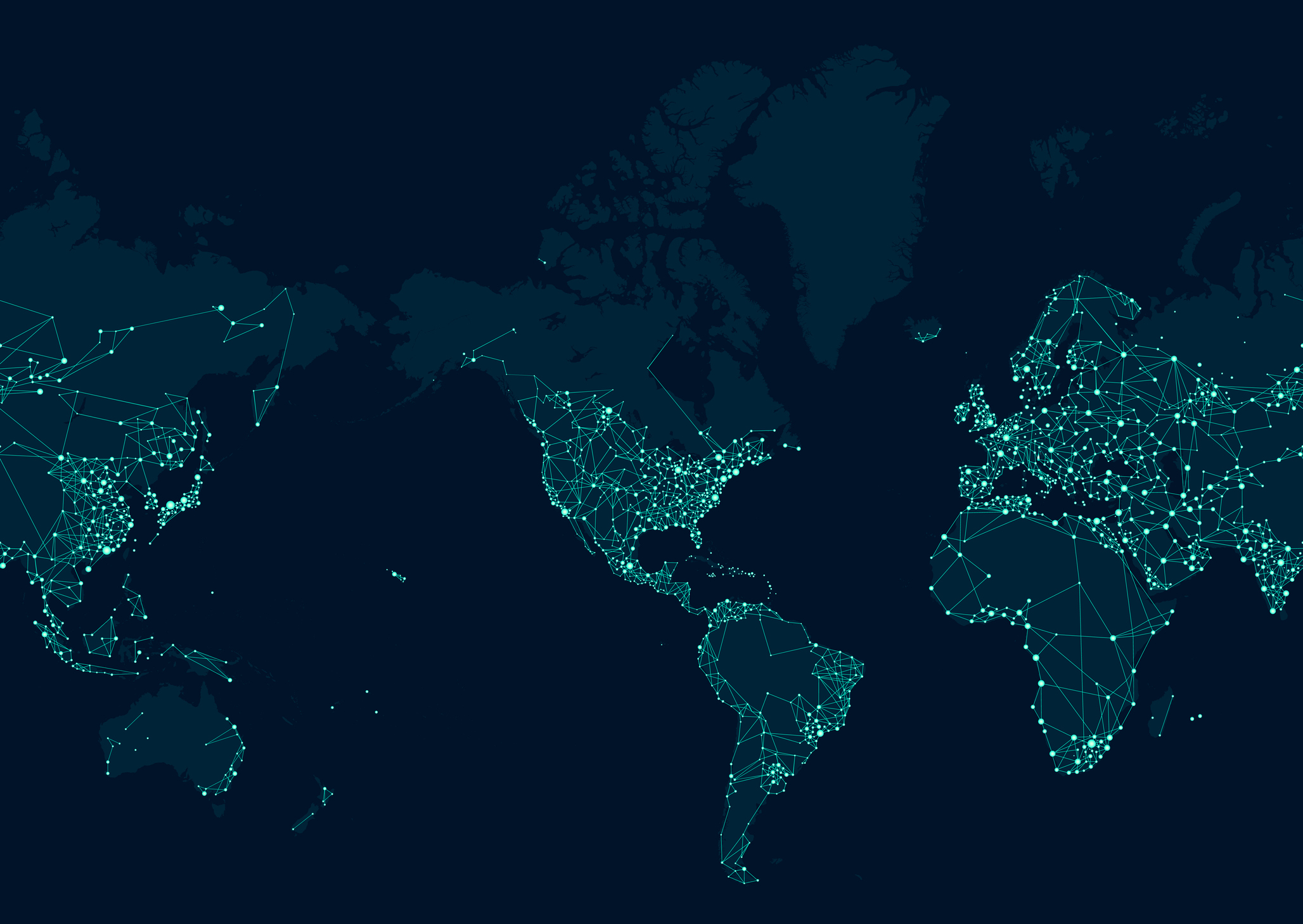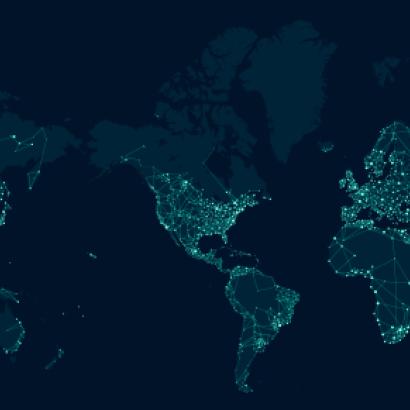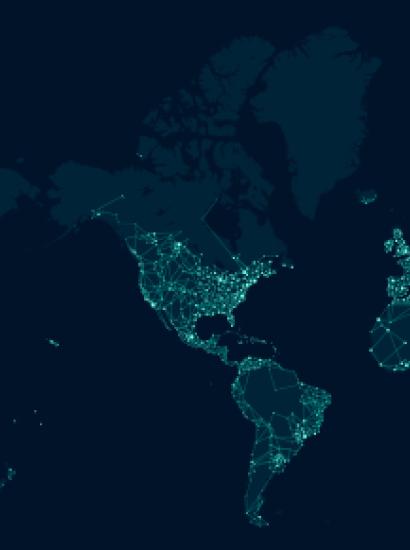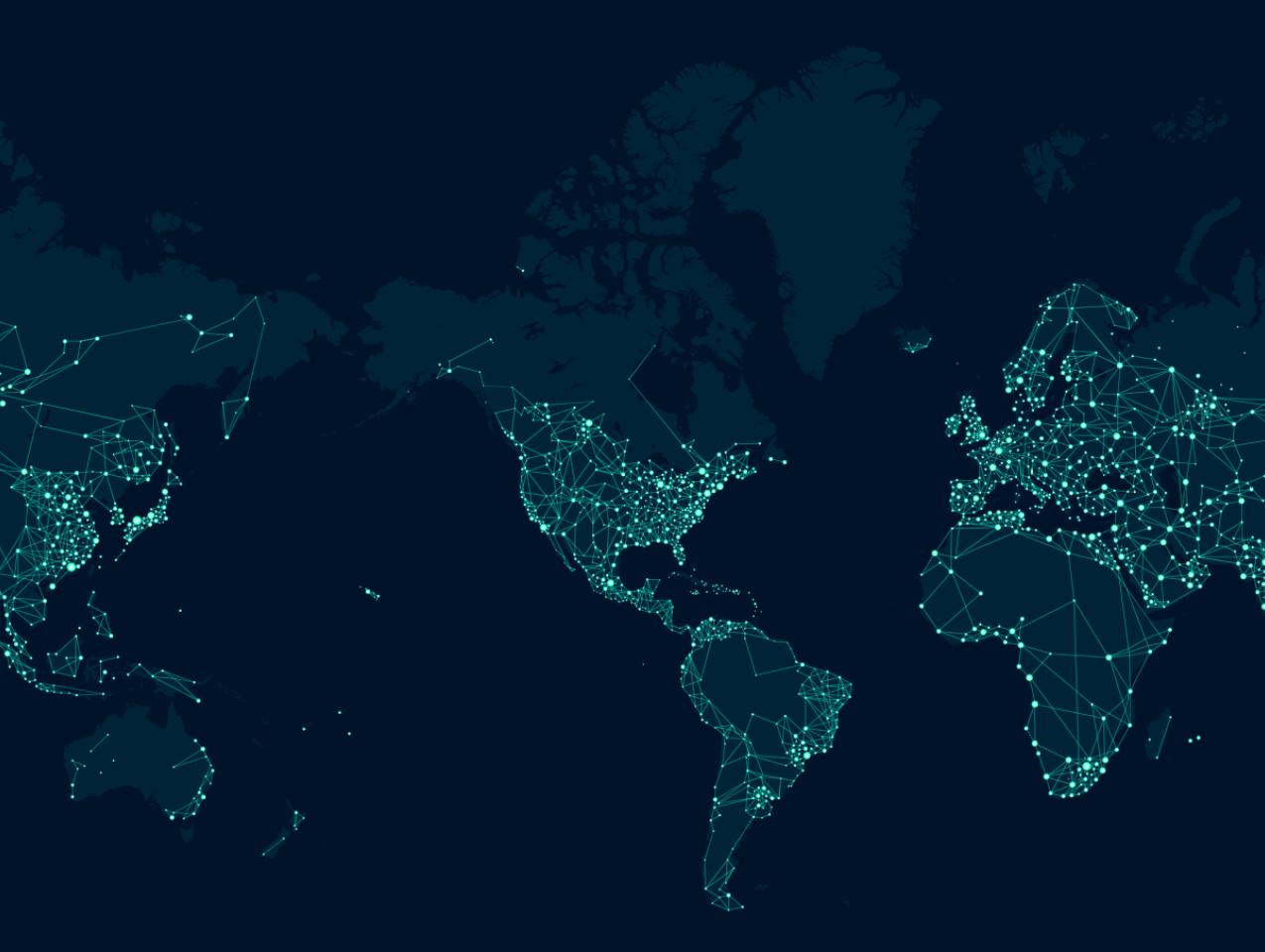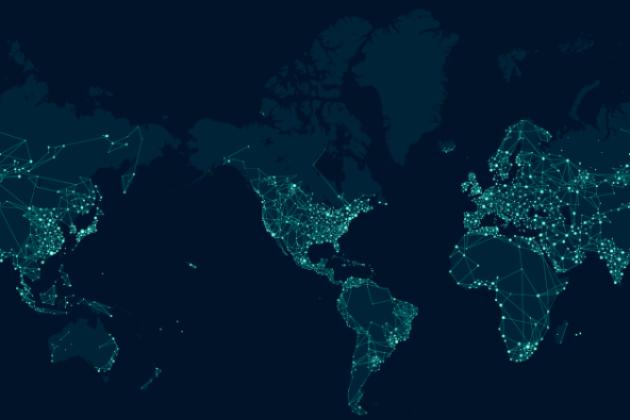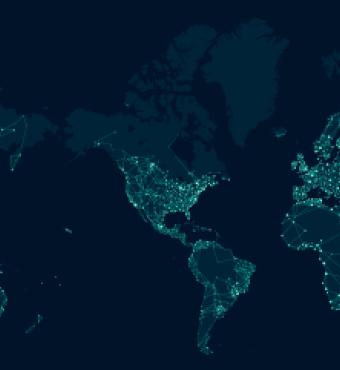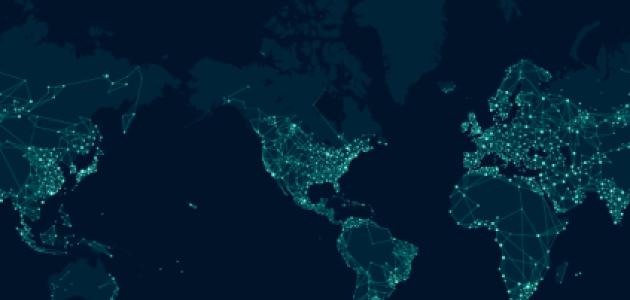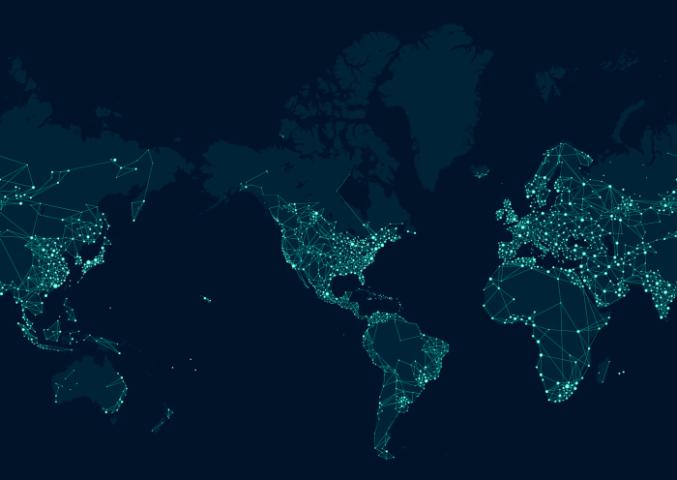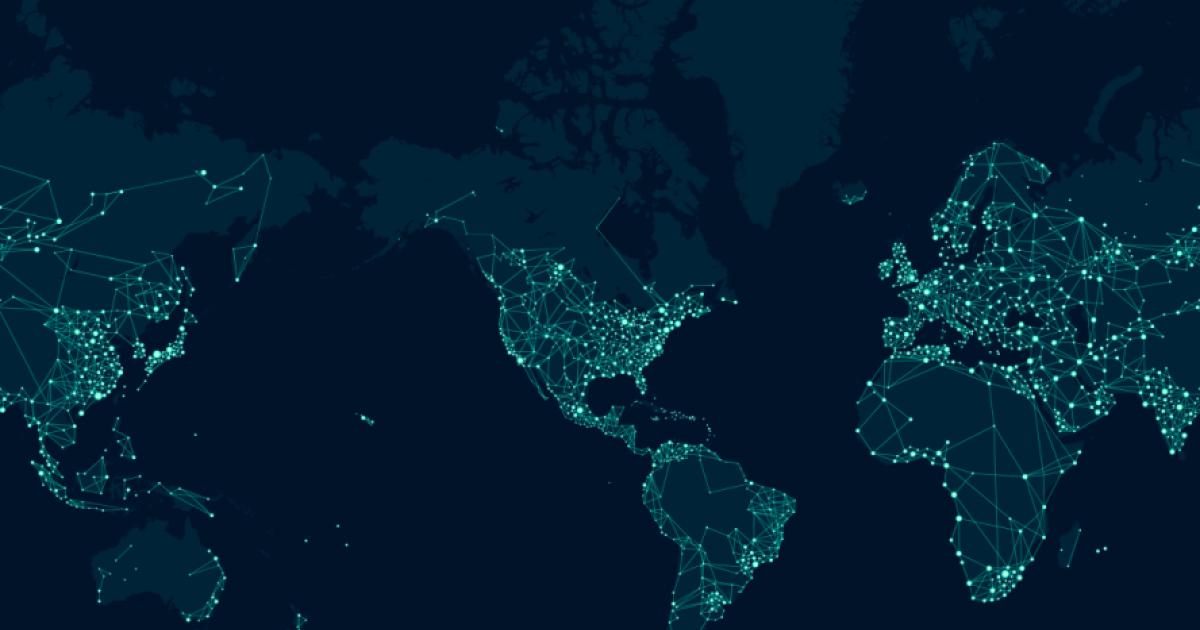Africa is home to a burgeoning digital domain. Africans across the continent are taking notice of what mobile internet technology offers them. In fact, the vast majority of Africans believe that increased internet access offers paths to improved education, economies, and personal relationships.1 Though there is scepticism about the role of mobile internet technology in politics, there is a generally positive interpretation of where it could lead. Africans are not timidly wading into the technological fray but rather enthusiastically diving in.
Technology is making our world smaller, day by day. The gulf in access to this digital marketplace between the haves and have-nots of the world is shrinking as more users than ever before are signing onto the World Wide Web. The gaps of yesteryear are being quickly replaced with a global economy capable of being powered by a device in the palm of our hands. Mobile devices can be agents for increased accountability, vehicles to greater education, and offer access to services never before enjoyed by some of the world’s most vulnerable citizens. Whether increasing awareness about voter registration or education on HIV/AIDS in communities without ready access to professional medical advice, technology is delivering actionable and quantifiable improvements to people’s lives. These disruptions to the day-to-day way of life for millions offers the potential to improve democratization and the ability for people to participate in their civil society, not only as citizens but as entrepreneurs. Understanding the trends will help us better understand both the possibilities and pitfalls of increased mobile technology access.
New connections are being forged across the continent, with new opportunities for networks to grow. Facebook, Twitter, Instagram, WhatsApp, amongst so many others, are redefining the landscape of how we communicate and work with one another. With 2.23 billion active monthly users, Facebook services more than a quarter of the population with its full range of options. This saturation across a global context is making our world smaller, more rapidly connectable, and easier to be engaged. Now, activists from Latin America and Africa can connect over questions of peace and security with the click of a mouse and a friend request. As the expansion of these networks grows, the scalability of this impact is growing ever faster.
Yet, it is necessary to understand that, as with all technologies, there is an inherent duplicity to their application. Technology is foremost a tool, the end to which that tool is applied comes down to the user. Human beings are those who ascribe their meaning and significance. Resultingly, technology is not an objective good but one that must be found and applied with the right intentions for the end of enabling good. Consider the role of social media in simultaneously bringing disparate and widely dispersed populations into touch with another for the first time. Yet, while some would use social media as a means to connect across the world to many of different backgrounds, there are those who pull ever more deeply into a cocooned existence. They increase the chasm between those unlike them and pull ever closer to those who are like them, thereby enabling the rapid rise of extremist elements across political and religious ideologies. Moreover, the manipulation of these elements enabled elections to be influenced and the fires of discontent to be fanned to fray at the fabric of civil society in both the developing and developed world. Thus, we must pay particular attention to the ends that technology is applied to as a means.
Mobile internet technology thus carries the potential to empower and enable, all while meaningfully expanding the economy. Studies have found that a “developing country with an average of 10 more mobile phones per 100 population has 0.59 percent higher GDP growth than an otherwise identical country.”2 Mobile technology decentralizes the engine of progress into the hands of the participants that it enables to enter the marketplace. In 2010, the number of mobile phone subscribers was 350 million.3 However, as neighbours step forth across the chasm of the digital divide that persisted for years, many African countries are now leaping forth to catch up.
Yet, use across the continent is uneven. South Africa is the only country in the region where at least half of the population is online with 59%, higher than the global average, online.4 Yet, in a recent study conducted of the 17 leading countries in sub-Saharan Africa, home to more than 300 million people, there was incontrovertible evidence of the integral role that mobile technological adoption and use is improving the lives across the continent. These countries have seen growth rates per capita averaging at 3.2% a year, which equates to overall GDP growth outpacing 5%.5 To the everyday citizen of this country, this means a 50% increase in average incomes in the last 13 years.6 Integral to this is the adoption of new mobile phone technologies and the creation of new industries and occupations.
As a result, communication is being put in the hands of the many who never had it before, but the proliferation of mobile internet technology in those phones is leading to an explosion in access to the internet and the information as well as opportunity contained therein. In December 2017, African mobile internet penetration rested around 35.2% well below the world average of 54.4%.7 Africans across the continent are insatiably pursuing to close this digital divide. From 2017 to 2018, there was a 20% increase in internet penetration.8 With each step forward, more economic opportunities are emerging for Africans to participate not only in their local economy but to bring the local into a global context. Moreover, the informal market is burgeoning as people begin to place themselves within the equation to derive benefit. Whether selling minutes and “airtime” or using their ingenuity to learn how to fix mobiles, Africans across the continent are adapting to their marketplace and building in their own local sustainability for a global connected market.
Central to the emergence of these informal markets, as well as more sustainable internal transfers of money within local economies that thereby benefit the national economy, is the provision of services of which many Africans were never able to have before. Millions across Africa are considered the “un-bankable,” people whose earnings are so low or present such a risk to banks that it is impossible for them to open up accounts and begin to work and establish lines of credit to build their wealth. Yet, it also presents security challenges as money is always physically in the market rather than in controlled spaces within the banking network. Money and opportunity could then “bleed” from the system as it was stolen or not retained long enough for an individual to establish purchasing power and a mechanism by which to safeguard their money. The British Department for International Development and private developers partnered in an attempt to offer a solution for this with the launch of M-PESA in Kenya.9
First launched in 2013, M-PESA aimed to develop a system of credits and mobile money transfer grounded in an SMS based system to move from user to user. Now, at least 70% of the population in Kenya uses M-PESA.10 The transfer of money between customers and businesses or family members is now secure, convenient, and cost-effect. Moreover, there are more than 110,000 vendors across the country who use M-PESA based exchange as a means of payment, including all major vital services and vendors and everyday life and participation in the local market, such as shopkeepers, banks, and gas stations.11 This grew from an original pool size of 23,000 in 2010.12 Resultingly, the 70% of the population that now uses mobile money in Kenya on the M-PESA platform are more “fully integrated” into the marketplace.13 With lower barriers for participation, it is then easier for these new participants in the marketplace to innovate and begin to build their own businesses while simultaneously building a more sustainable local market.
The results are telling. In the first five years that M-PESA operated in Kenya, it lifted 194,000 households or 2% of the Kenyan population out of extreme poverty.14 As such, the Kenyan government is adjusting and opening up its financial regulations to better enable and diversify access to this mobile money market. Banks can now compete directly with M-PESA and the launch of M-Shwari gives proper accounts to users to participate in the M-PESA system.15 In 2014, M-PESA expanded its market of payable agents to include telecommunications companies and other banks, further embedding M-PESA and its users within the formal market structures of the Kenyan economy. Mobile internet technology is undoubtedly changing lives while simultaneously rewriting the rules for how to bridge the impoverished into a sustainable formal market structure.
Now, more than ever, we stand at the precipice of unlocking incredible potential across Africa. Foreign governments are taking notice and so, too, are foreign investors. Growth is occurring exponentially. Across the continent, African start-ups generally raised 50% more venture capital in 2017 than in 2016.16 Tech output is becoming a mainstay in the economies of significant players on the continent: 11% of the Kenyan and 10% of the Nigeran economic outputs are directly related to their technology sectors.17 Resultingly, the Departments for International Trade and International Development are building out partnerships and accelerators in coordination with the private sector to vault these new and exciting contributions to the African and global marketplace quickly and sustainably.
Critically, there is an ambitious generation of young Africans ready to take this mantle and begin to bend the arc of their story towards increased prosperity. Across all of Africa, there are 1.2 billion people, and of those 60% fall under the age of 24.18 This is only going to continue to grow with estimates placing the population of Africa in 2050 to be 2.4 billion. There is an incredible opportunity to train and empower the next generation of innovators through mobile internet technology and a widening social consciousness through social media.
Mobile internet technology is literally putting the power in the hands of Africans across the continent. Now, in order to scale this effect across the continent to further lower the barrier to access, we need to think about the role of the cloud. With improved access to cloud-based data management, effective systems like M-PESA and other technical applications capable of driving positive impacts can be rapidly scaled across communities and countries and ultimately the continent.
Cloud is taking the computing power we have come to know first on our personal computers and on-premises servers and industrializing its capacity with computing infrastructure on a global scale, for everyone’s benefit. Amazon pioneered this by investing billions of dollars to build multiple industrial-sized computing centres around the world and networking them cost-effectively with high-speed fibre optic cables. This means that we need less capital and less infrastructure to grow organizations. We can displace capital with technology to build, scale, and innovate globally on an unprecedented scale. The power of cloud computing to scale innovation, to reduce the cost of computing, and to increase its accessibility to everyone is one of the drivers of growth in the global economy.
The significance of cloud-based computing cannot be overstated. Cloud data storage enabled an aggregation of more data in the last few years than in the preceding 2000 years. This in turn enables us to learn from patterns in data in an unprecedented way. This enables us to bring the transformative power of different forms of artificial intelligence (AI) to bear on real world problems. Today, it is vital that we harness the full transformative power of cloud computing to offer the unprecedented opportunities for innovation and entrepreneurship in a young and eager economic setting such as Africa.
To continue to grow this in Africa, venture capital must begin to invest in African companies. Venture capital will play a vital role in enabling sustainable and enduring growth in mobile technology within Africa. Patterns across the continent now border on predatory consumption of companies with good ideas. Instead, there must be a move to grow and enable the growth of African companies within an African context managed and powered by the intellect and efforts of Africans from across the continent. Venture capital will provide the bridge to opportunity so desperately needed to jumpstart domestic entrepreneurship, but it will require scaled investment. Governments can play a major role in helping grow this sector. Consider the United Kingdom’s new national security innovation fund, which brings together corporate venture capital, university endowments, and government funds to enable faster and greater investment in projects vital to the security of the state. Using the same design, the United States government can help grow effective and scalable investment efforts alongside the private sector and domestic African governments to ignite further innovation in Africa.
Another important step that mobile internet technology and social media can play across Africa is the building of more peaceful communities. A new emerging field within the start-up and tech space is Peacetech. Simply defined, Peacetech is the purposeful application of the innovation that cloud computing enables for good and not for evil. Example programs include cloud-enabled innovation, through which we can rapidly scale technology to immediately have strategic impact. Used for good, this can sustain national and international security gains while building a strong peace and securing the future for young Africans.
Yet, we must also confront the dark side of technology, for as much as mobile technology is bringing people together, one need only read the headlines in any country to see how it is also playing a role in tearing people apart. As individuals silo themselves into more distinct communities and build the walls around them higher for those not within their group, the boundaries between certain social groups are becoming hardened and sharper. With the ability to rapidly communicate and mass supporters as quickly as one sends a tweet, the ability to organise is vastly easier than ever before. These mass organisations of people can be both empowering in their solidarity when peaceful and out of control in their violence when heated.
In Africa, a continent long suffering from a myriad of conflicts and struggles, where the crime of genocide is a recent memory in some communities, there is an even greater need to consider the impacts of technology when abused for malevolent purposes. One need only remember the use of the radio in the Rwandan genocide to give orders and enable the killing of innocents; the rapidity and scale of communication that mobile technology offers must be confronted and managed responsibly by businesses and governments alike. If groups silo and harden against other social groups, societies are at risk of isolating and marginalising minority social groups ever further from the benefits of society. Doing so increases the chance of violence by the majority group but will heighten the calls to radicalisation amongst the outgroups. Thus, while social media offers a period of transitional change that carries the power to unite, it simultaneously risks the polarization of the “other.” To counter this risk, the United States government must work with domestic African governments and civil societies to actively counter efforts to divide rather than unite. There is far too much at stake to be mere observers.
There are already leaders in this space like the PeaceTech Labs in Washington, DC, who are confronting this aggressive use of technology for violent means. They are designing and enabling methods to responsibly use technology to amplify messages of unity and cohesion over division and discord. For example, the Kenyan Election and Violence Prevention Program (KVEP), a public-private partnership between the PeaceTech Labs, Mercy Corps, and the United States Department of State, aimed to use technology as a means to prepare a broad swath of Kenyan society in four target counties to “ensure that youth and communities were able to remain resilient to political manipulation and ensure a peaceful election.”19 The program democratised the ability of people to report and respond in real time to events of “election-related tension, rumours, hate speech, and brewing violence.” Furthermore, to provide additional context and intelligence-led prevention, PeaceTech Lab analysts monitored social media pages and popular websites for heightened or aggressive terminology related to previous heated dialogue that contributed to the outbreak of violence in particular areas. By coupling intelligence-based analytical prevention with democratised report and response mechanisms, PeaceTech Labs was able to keep citizens informed and alert authorities in the event of simmering violence.
Social media and mobile technology do not only play a role in organising mass demonstrations or violent demonstrations, but they are also radicalising youth and pulling them deeply into the abyss of extremism. Whether it is Al-Shabab in Kenya or the Islamic State across the Middle East and beyond, terrorist and extremist organisations are using social media and mobile technology to reach new recruits. Preying on disaffected youth or those with dashed expectations, these organisations are targeting and communicating directly with their new recruits. Using flashy social media posts with highly produced videos, these organisations are using marketing efforts more akin to a young exciting start-up than the terrorist organisations of yester-year. They aim to be both hip and extreme in playing their struggles as the main effort of the day, one where the youth belong to play a part in making history. Countering these messaging campaigns has remained a constant difficulty for governments and civil society alike. The United States Department of State struggled to establish effective communication campaigns against the Islamic State. The Combined Joint Task Force for Operation Inherent Resolve, the military coalition working with the Iraqi government to purge the Islamic State from the region, launched a multi-national team to work to stem the tide of spreading hate speech and radicalisation online. Meanwhile, PeaceTech Labs is using data analytics to evaluate and understand hate speech when used over mobile technology to better understand the role language plays in radicalisation. By identifying and then blocking these lines of communication, organizations can counter the tide of radicalisation among youth and identify areas to prioritise for engagement with counter-radicalisation narratives. Managing and regulating the internet’s forum of ideas is vital to shaping whether or not mobile technology will bring people closer together or wedge them further apart.
Governments are also weaponizing the use of mobile technology. The Russians are sowing discontent and working to manipulate elections through hacking and social media campaigns. The Chinese People’s Liberation Army uses cyber capabilities on social media as a means to disrupt its adversaries and internally to suppress dissent while establishing further social control. Social media and mobile technology are new tools in the ever-evolving pursuit of strategic advantage.
Therefore, the failure of Western governments, especially the United States, to get involved in funding virtuous applications of social media and mobile technology to democratise dialogue and enable entrepreneurship in Africa risks allowing the vital African market to fall into the hands of strategic adversaries. Often, there are comparisons of the innovation economy in the United States and the United Kingdom with that of China, but it is important to grasp that the Chinese model is a radically different proposition to the Western model. The application of cyber and AI for internal controls means that China and its close allies are building technology-based authoritarianism. This is in sharp contrast to our open systems and the underlying altruism of our innovation economy that enables our freedom of choice, even if the luxury of having so many choices and so much convenience can at times be overwhelming to us.
However, the impact of social media and mobile technology also requires meaningful commitment to the virtues at the heart of Western liberal democracy. Central to this is the role of good governance, the essential building block of a strong and lasting peace and the promise of economic growth. The potential success of technology must offer a tantalising incentive to compel leaders to offer the good governance required to allow and enable the continuing flourishment of a sector in which millions of Africans are placing their hopes for the future. For venture capital investors in Europe, the Middle East, and Africa, corruption and innovation are opposing forces. Where one is present, the other is invariably absent. Innovation thrives on good governance. Corruption corrodes and kills innovation and opportunity thereby wasting the talent of generations. Standing at the edge of a transformative era in technology and the economy of Africa to better determine its own destiny, African governments and their Western partners must demand transparency and a strong commitment to the values of the liberal international order to enable their citizens to flourish in the digital domain.
Moreover, the diffusion of mobile technology capable of rapid saturation opens new doors for the possibilities of education across Africa. The power of educating the next generation on myriad topics, from mathematics to voting to public health, can now be placed in the palm of every citizen’s hand. Access is now scalable so long as investment and effort follows to make it relevant and central to how governments are integrating mobile technology as a means of communication and education. With the introduction of technologies such as Iridium’s Cloud Connect, global coverage is possible, it must be invested in as an enabler. By focusing on this, the United States and other Western governments can better accelerate the digital scaling of the participation of African youth in the global digital domain.
Mobile internet technology and social media offer the hope of a better future. Acting as vehicles to improve access to traditional marketplaces, bridges into a global economy, and access to national and global conversations, these technologies offer Africans the chance to better determine their own economic future and progress. Though technology may only be a tool, it offers the means to lift people from poverty, increase discussion in civil society, and bring communities closer together, both formally and informally, thereby creating a clear path to a more sustainably prosperous future across the continent. Ultimately, there is much reason to hope. As digital usage continues to grow across the continent, we place our hope in the reality that those under 25 in Africa, the largest growing population in Africa, believe in a future where innovation and success in the marketplace are what move nations to prosperity. It is now our time to facilitate and empower this ascension to the world stage in the digital domain that promises further prosperity and democracy for millions.
Andre Pienaar is the managing partner and the founder of C5, a technology investment group. Zach Beecher is the manager at the Cloud Leadership Centre.







